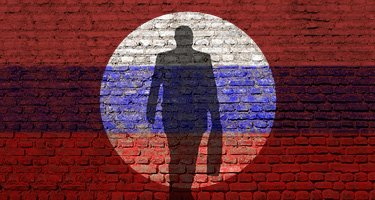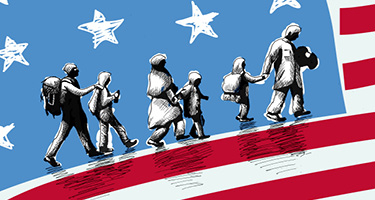According to the U.S. State Department, there are more than 24.9 million adults and children subjected to human trafficking around the world. More sex trafficking and human trafficking cases are emerging in criminal and civil courts, the most prominent of which was the recent trial of former British socialite Ghislaine Maxwell.
In December 2021, Maxwell was found guilty by a jury in the Southern District of New York for five out of six federal criminal charges stemming from recruiting and grooming teenage girls for sexual encounters with disgraced, late financier Jeffrey Epstein between 1994 and 2004. Maxwell now faces 65 years in prison. The charge of sex trafficking a minor was the most severe of all, carrying a 40-year maximum prison sentence. Shortly after the guilty verdict was rendered, Maxwell’s lawyers announced their intention to appeal based on personal information withheld by a juror, who was allegedly a victim of sexual abuse.
Marisa Trasatti, a partner at Wilson Elser Moskowitz Edelman & Dicker LLP in Maryland, has defended corporate clients in sex trafficking civil cases. She said if a new trial is granted or an appeal is successful due to the juror irregularities, it would reflect on the procedural due process of the trial.
“The sanctity of a jury verdict is typically upheld, except where you have inappropriate juror conduct and/or litigant conduct vis-a-vis the jury, for example, and I would characterize the jurors’ withholding information during voir dire as ‘inappropriate,’” said Trasatti, who has defended hotel franchisees and franchisors and security companies in civil trafficking cases. “That is key information, because voir dire included questioning related to jurors’ experience with sexual assault and the jurors’ disclosures allegedly came out during deliberations related to the credibility of certain witness testimony.”
The timing of the Maxwell verdict is critical, she noted, since January is National Human Trafficking Prevention Month in the U.S. and underscores how women can also be the traffickers. Further, considering the high level of media coverage of the Maxwell case and accusations that Prince Andrew, Duke of York, engaged in sexual activities with a woman who was allegedly trafficked for sex by Epstein, Trasatti anticipates that the filing of human trafficking civil claims will continue. This is a watershed moment for this litigation.
“When I had my first four trafficking cases in Maryland in 2017 and 2018, they sounded in common law negligence and were filed in state court. No one was filing under the Trafficking Victims Protection Reauthorization Act,” Trasatti said. “Now, we see more federal cases under the TVPRA. In fact, all of my franchisor cases were filed in Federal courts around the country.
It’s easy to conflate prostitution or voluntary sex work with trafficking, which is involuntary sex work. Sex trafficking is hidden and clandestine. In litigation, we are seeing an attempt to expand the definition of human trafficking to facts that never before were considered trafficking. This is due in part because of the extended statute of limitations under the TVPRA. It also seems like the media uses ‘trafficking’ as a buzz word to grab attention.”
Trasatti added that the press and media coverage of these cases creates social inflation—the political, economic and social factors that impact how jurors view and value cases. Social inflation can also lead to increased filings and higher verdicts in civil arenas, she said, all while cases are evolving.
“Defendants in the first wave of civil trafficking litigation in 2017 and 2018 were initially low-rung hotel franchisees, then the second wave of the civil cases came against the large, brand franchisors, and now in the third wave of the litigation, the Plaintiffs’ bar has their eyes set on BigTech,” Trasatti said. “They're trying hard to get around Section 230 of the Communications Decency Act, to include social media companies and others.
This litigation will not end human trafficking. It really is just a secondary exploitation of the trafficking survivors, and to some extent the innocent third party premises who neither knew nor had any way of knowing what happened behind a closed door. This becomes a foreseeability issue and the traffickers are cunning and ever-changing, so our training tactics to combat it need to evolve, likewise. Lawsuits are not the answer.”
Justin Smulison is a professional writer who regularly contributes to Best Lawyers. He was previously a reporter for the New York Law Journal and also led content and production for the Custom Projects Group at ALM Media. In addition to his various credited and uncredited writing projects, he has developed global audiences hosting and producing podcasts and audio interviews for professional organizations and music sites.
































